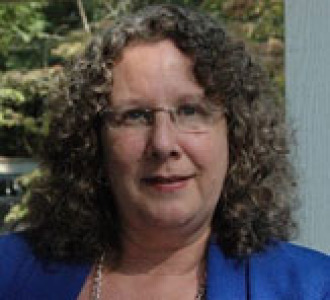WASHINGTON, July 14, 2016 - The House Environment and the Economy Subcommittee, chaired by Rep. John Shimkus, R-Ill., recently held a hearing on nuclear fuel disposal, focusing on the Yucca Mountain nuclear waste repository site in Nevada.
Yucca Mountain was designated in 1987 as the sole site for a deep, geological repository to store high-level radioactive waste and spent nuclear fuel. Congress included mechanisms in the Nuclear Waste Policy Act of 1982 for collaborative partnerships with state, tribal and local governments, such as funding for technical support activities and economic benefits to host a nuclear disposal facility.
The Department of Energy (DOE) was required by the Nuclear Waste Policy Act to begin removing used fuel from reactor sites by 1998. The government’s failure to do so has resulted in nearly $2 billion in court-awarded damage settlements being paid from the taxpayer-funded Judgment Fund to compensate energy companies for storing the used fuel onsite, says the Nuclear Energy Institute (NEI). NEI notes that damages could reach more than $20 billion by 2020 and up to $500 million annually after 2020.
In the face of opposition, federal funding for Yucca Mountain ended in 2011.
The hearing, titled Federal, State and Local Agreements and Economic Benefits for Spent Nuclear Fuel Disposal, allowed the subcommittee to hear from Nevada stakeholders and also explore federal, state and local perspectives and economic benefits of moving forward with the Yucca Mountain project.
Shimkus said that hearing testimony would play a key role in informing the panel’s efforts to develop comprehensive legislation to advance used fuel management.
Since the federal government made the decision to site the repository at the Yucca Mountain, Shimkus said “DOE should be working with Nevada stakeholders to make progress on the repository instead of ignoring the law. This hearing has done the job that DOE refuses to do.”
Rep. Fred Upton, R-Mich., the chairman of the full Energy and Commerce Committee, also expressed dissatisfaction with DOE, accusing the department of “wasting valuable time and money, and ignoring a history lesson while taxpayers continue to rack up billions of dollars in liability for the delay in opening Yucca Mountain.”
“Instead of expending financial resources to hear from everyone but the State of Nevada,” Upton said, “DOE should reconstitute the Yucca Mountain program and engage in a meaningful conversation with those stakeholders as we did today. Our nuclear energy future depends on it.”
Several Nevadans weighed in:
- Rep. Mark Amodei, R-Nev., stressed the fact that Nevadans cannot simply ignore Yucca Mountain and think it is off the table. “No one in Nevada is in favor of a nuclear landfill – neither am I,” Amodei said, “but, the issue is not going to go away.” Amodei noted that policymakers need to evaluate a responsible course of conduct with respect to local and state economic impacts, operating oversight, safety policy in the near and long term, and U.S. policy regarding nuclear material.
- Rep. Cresent Hardy, R-Nev., noted the importance of having an open, constructive dialogue on the issue, saying “Nevadans deserve to have honest brokers in their federal government, and they deserve to hear the unbiased, scientific results that all of their hard-earned dollars funded… Too many politicians are afraid to engage in a constructive dialogue on this issue. They fail to recognize that discussing Yucca Mountain doesn’t equal endorsement of the project. Dialogue isn’t capitulation. It’s leadership.”
- Dan Schinhofen, vice-chairman of the Nye County, Nevada, board of commissioners, discussed the importance of having a collaborative process that supports the community. Schinhofen proposed creating a collaboration between DOE, the state, Nye County and other affected local governments, to ensure that resources are provided to support the construction and operation of a nuclear waste repository at Yucca Mountain.
For a background memo, witness testimony or archived webcast of the hearing, click here.
#30
For more news, go to: www.Agri-Pulse.com

